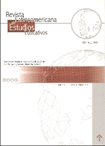Authors
Abstract
In this article, the author presents his proposal to his academic peers starting from eminent political positions on the commanding curricular structures which, from the critical perspective, barely contribute to the formation of professionals with the capacity to generate knowledge, develop science and improve life conditions of their society. Professor Yepes tangentially mentions the main theoretical approaches to curriculum and its goals and limitations, to get to the argumentative development which privileges the critical perspective of curriculum as a democratic and participative possibility for the transformation of the commanding educational structures. To achieve this purpose, he sketches the necessity of departing from the research proposals which expose the intention of the official curriculum with its prescriptive character in order to allow transformational proposals arising from features which should equally be assessed according to their goals and limitations, taking into account, their specific contexts of intervention. In this proposal, the idea of the construction and the autonomous design of the university curriculum structures is made evident through the purpose of designing its own destiny in harmony with the specific conditions of each institutional context.
References
Carr, W. y Kemmis, S. 1988. Teoría crítica de la enseñanza. Barcelona: Martínez Roca.
Dewey, J. 1916. “Democracy and education”, p. 225, citado en L.A. Cremin, The transformation of the school: Progressivism in American education 1876-1957 (Nueva York: Vintage/Random House),1961, p.125.
Díaz Barriga, A. 1966. El currículo Escolar. Buenos Aires: Rei Argentina, Instituto de Estudios y Acción Social, Aike.
Gardner, H. 1983. Frames of mind: The theory in practice. Nueva York: Basic Books.
Gimeno Sacristan, J. 1995. El curriculum: una reflexión sobre la práctica. Madrid: Morata.
Gómez Buendía, Hernando. 1998. Educación la agenda del siglo XXI. Santafé de Bogotá: Tercer Mundo.
Goyes M, Isabel. Uscategui de Jiménez Mireya. 2000. Teoría Curricular y Universidad. San Juan de Pasto. Universidad de Nariño.
Kemmis, S. 1993. El curriculum más allá de la teoría de la reproducción. Madrid: Morata.
Kohlberg, L. 1971. “States of moral development as a basic for moral education”, En C. M. Beck, B.S, Crittenden y E.V Sullivan (Eds). Moral education: Interdisciplinary approaches. Nueva York: Newman.
Kuhn, T.S. 1970. The structure of scientific revolutions (2a. ed). Chicago: University of Chicago press.
López Jiménez, Nelson. Retos para la construcción curricular. Santafé de Bogotá; Magisterio.
Schwab, J.J. 1969. “The practical: A language for curriculum” School Review, 78, pp. 1-23.
Stenhouse, Lawrence. 1993. La investigación como base de la enseñanza. Madrid, Morata.
Taba, H. 1962. Curriculum development: Theory and practice. Nueva York. Harcourt, Brace & World.
Tyler, R. 1949. Basic principles of curriculum and instruction. Chicago: University of Chicago Press.

 PDF (Español)
PDF (Español)
 FLIP
FLIP



















